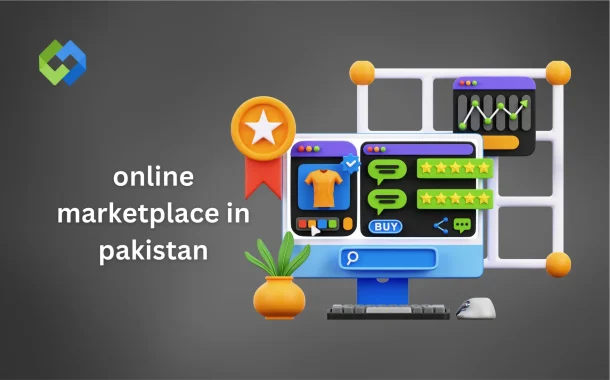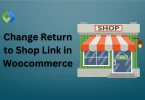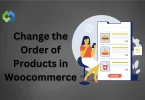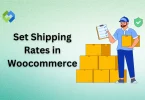They offer a wide range of products and services, from electronics to clothing and even groceries, all accessible from the comfort of one’s home. This growth is significant as it opens up new opportunities for businesses to reach customers nationwide, especially in areas with limited traditional retail infrastructure. With the rise of online marketplaces, Pakistanis can access diverse goods and services with just a few clicks, revolutionizing how commerce is conducted in the country.
Table of Contents
Table of Contents
E-Commerce in Pakistan
E-commerce in Pakistan has become increasingly popular, allowing people to buy and sell goods and services over the internet. This means you can shop for items like clothes, electronics, groceries, and more without going to a physical store. Many online marketplaces and businesses have popped up to cater to this growing demand, offering various products.
One of the reasons for the rapid growth of e-commerce in Pakistan is the increasing number of people using the internet, especially through smartphones. This means more and more people have access to online shopping platforms, making it easier for businesses to reach potential customers. Additionally, the convenience of shopping online from the comfort of your own home has attracted many consumers to e-commerce.
The COVID-19 pandemic has further accelerated the adoption of e-commerce in Pakistan. With lockdowns and social distancing measures in place, people turned to online shopping as a safer alternative to traditional retail. This shift in consumer behavior has led to even more businesses embracing e-commerce and investing in their online presence.
However, e-commerce in Pakistan still needs help with logistical issues, payment security concerns, and regulatory hurdles. Despite these challenges, the future looks promising for e-commerce in Pakistan, with technological advancements and supportive government initiatives expected to drive growth in the sector further.
Current Landscape of Online Marketplaces in Pakistan
The current landscape of online marketplaces in Pakistan presents immense opportunities for businesses to tap into a growing market of tech-savvy consumers.
1. Dominant Players in the Market
Certain platforms stand out as the biggest players in Pakistan’s online marketplace. One such platform is Daraz, which is owned by Alibaba, a global e-commerce giant. Daraz offers a wide variety of products, from electronics like smartphones and laptops to fashion items, beauty products, and even groceries. It’s like a big virtual marketplace where sellers from all over Pakistan can list their products for sale, and buyers can browse through thousands of options without leaving their homes.
Daraz has become well-known for its promotional events, like the Daraz 11.11 Sale, where customers can find huge discounts and special deals on various products. This has contributed to its popularity among Pakistani consumers. With its extensive reach and diverse product offerings, Daraz has established itself as a dominant force in Pakistan’s online marketplace landscape.
2. Emerging Competitors
Alongside dominant platforms like Daraz, there are emerging competitors in Pakistan’s online marketplace. These platforms, such as Shopistan, Telemart, and Yayvo, cater to specific consumer needs and preferences. For instance, Shopistan may focus more on fashion and lifestyle products, while Telemart may specialize in electronics and gadgets.
These emerging competitors contribute to the diversity of the online marketplace by offering unique products and services. They provide alternative options for consumers and create healthy competition, driving innovation and improving the overall shopping experience. As they continue to grow and expand their presence, they add dynamism to Pakistan’s e-commerce ecosystem.
3. Consumer Trends and Preferences
There’s a noticeable shift in consumer behavior in Pakistan’s evolving online marketplace. More people are opting for the convenience of online shopping due to factors like busy lifestyles and the ease of comparing prices and products. With the increasing availability of smartphones and internet connectivity, shopping online has become more accessible to a larger population.
Consumers are drawn to online marketplaces because of the competitive pricing and the wide variety of choices. They appreciate the convenience of delivering products to their doorstep, saving time and effort. As a result, there’s a growing trend towards online shopping habits, which indicates a significant shift in how people in Pakistan prefer to shop for goods and services.
4. Challenges and Constraints
Despite the growth and popularity of online marketplaces in Pakistan, several challenges and constraints persist. One significant challenge is logistical constraints, particularly inefficient delivery and distribution networks, especially in remote or less developed areas. Additionally, infrastructural limitations, such as inconsistent internet connectivity and power outages, could be improved for the smooth functioning of e-commerce operations.
Payment security concerns remain a significant challenge for both consumers and businesses. Many consumers fear online transactions due to potential fraud or data breaches. Moreover, the regulatory environment for e-commerce in Pakistan is still evolving, leading to uncertainties and compliance issues for businesses operating in this sector.
5. Future Outlook and Opportunities
Looking ahead, the future of online marketplaces in Pakistan appears promising, with ample opportunities for growth and innovation. As internet penetration increases and technology advances, more people will likely embrace online shopping as their preferred mode of purchasing goods and services. This growing trend opens up new avenues for businesses to expand their reach and tap into a larger customer base.
Moreover, with the rise of digital payment solutions and the adoption of mobile commerce, online marketplaces will become even more accessible and convenient for consumers. This presents an opportunity for businesses to enhance their online presence and improve the overall shopping experience for customers. Additionally, as the regulatory environment matures and becomes more conducive to e-commerce, businesses will have greater clarity and stability when operating in the online marketplace.
6. Innovation and Adaptation
In Pakistan’s dynamic e-commerce landscape, innovation and adaptation play crucial roles in shaping the future of online marketplaces. Businesses in this sector must continually innovate to stay competitive and meet evolving consumer demands. This includes embracing new technologies to enhance the online shopping experience, such as implementing artificial intelligence for personalized recommendations or integrating virtual reality for immersive product browsing.
Adaptation is essential for businesses to navigate challenges and changes in the market environment. This may involve adjusting strategies to address logistical constraints, improving payment security measures, or adapting to regulatory changes. By remaining flexible and responsive to market dynamics, online marketplaces can better position themselves for long-term success.
7. Regulatory Environment
The regulatory environment significantly influences the operations of online marketplaces in Pakistan. As the e-commerce sector grows, policymakers are working to establish clear guidelines and regulations to govern online transactions effectively. This includes addressing consumer protection, data privacy, and taxation issues.
However, the regulatory landscape for e-commerce in Pakistan is still evolving, leading to uncertainties and business compliance challenges. Online marketplaces must stay informed about regulation changes and ensure compliance to avoid legal issues or penalties. Additionally, advocacy efforts by industry associations and stakeholders can help shape policies that support the growth of e-commerce while protecting the interests of consumers and businesses.
8. Potential for Growth
Amidst the challenges and opportunities, Pakistan’s online marketplace sector has immense potential for growth. With a large population, increasing internet penetration, and a growing middle class with disposable income, a vast untapped market is waiting to be explored. As more people access smartphones and the internet, the potential customer base for online marketplaces continues to expand.
Furthermore, the COVID-19 pandemic has accelerated the shift towards online shopping, as people prioritize safety and convenience. This has created new opportunities for businesses to innovate and adapt to changing consumer behavior. Additionally, advancements in logistics and payment technologies are making it easier for businesses to reach customers in remote areas and facilitate seamless transactions.
Opportunities and Challenges
There are abundant opportunities for growth and innovation in Pakistan’s online marketplace sector.
Opportunities
- Market Expansion: Online marketplaces allow businesses to break geographical barriers and reach customers nationwide and even globally. This allows businesses to expand their customer base and increase sales potential, tapping into new markets and demographics.
- Diverse Consumer Base: With Pakistan’s large and diverse population, businesses can cater to various consumer preferences and needs. Whether offering specialized products for specific cultural or demographic groups or catering to niche interests, online marketplaces allow businesses to tailor their offerings to meet the diverse demands of Pakistani consumers.
- Innovation: Digital platforms allow businesses to innovate their product offerings, marketing strategies, and customer experiences. Whether introducing new features, launching creative marketing campaigns, or experimenting with interactive shopping experiences, businesses can leverage technology to stay ahead of the competition and attract more customers.
- Convenience: One of the biggest advantages of online marketplaces is their convenience to businesses and customers. Customers can browse and purchase products from their homes anytime or at night. This convenience factor leads to increased sales and fosters customer loyalty as shoppers appreciate the ease of shopping online.
Challenges
- Logistical Constraints: Despite the growth of e-commerce, Pakistan still needs help in its delivery and distribution networks. Issues such as inefficient logistics, especially in remote areas, can lead to delays in order fulfilment and increased business costs. Overcoming these logistical constraints requires investments in infrastructure and innovative solutions to improve the efficiency of supply chains.
- Payment Security Concerns: Ensuring the security of online transactions is paramount for businesses operating in online marketplaces. With the growing threat of cybercrime and data breaches, businesses must implement robust security measures to protect customer data and prevent fraudulent activities.
- Regulatory Environment: The regulatory landscape for e-commerce in Pakistan is still evolving, leading to uncertainties and compliance challenges for businesses. With new regulations being introduced and existing laws being updated, businesses must stay informed and adapt to changes in the legal framework.
- Competition: The online marketplace space in Pakistan is highly competitive, with numerous businesses vying for consumers’ attention. To stand out amidst competitors, businesses must constantly innovate and differentiate themselves. This could involve offering unique products, providing exceptional customer service, or leveraging marketing strategies to attract and retain customers.
Social and Economic Impact of Online Marketplaces
Online marketplaces have a profound impact on both the social fabric and economic landscape of Pakistan.
- Job Creation: Online marketplaces generate employment opportunities across various logistics, customer service, and digital marketing sectors. This helps reduce unemployment rates and improve livelihoods, particularly among the youth and those in remote areas.
- Empowerment of Small Businesses: Online marketplaces provide a platform for small and medium-sized enterprises (SMEs) to reach a wider audience beyond their local markets. This empowers local artisans, artisans, and entrepreneurs by enabling them to showcase their products to a national and international customer base.
- Access to Products and Services: Online marketplaces increase access to diverse products and services for consumers, including those living in rural or underserved areas. This helps bridge the gap between urban and rural communities, ensuring equitable access to goods and services nationwide.
- Digital Inclusion: The proliferation of online marketplaces promotes digital inclusion by encouraging more people to embrace digital technologies and internet usage. This contributes to the overall digital literacy and empowerment of individuals, especially in remote or marginalized communities.
- Economic Growth: The growth of online marketplaces stimulates economic growth by driving consumption, investment, and innovation. It contributes to the expansion of the digital economy, attracting domestic and foreign investment in e-commerce infrastructure and technology.
- Social Connectivity: Online marketplaces foster social connectivity by bringing together buyers and sellers from diverse backgrounds and geographic locations. This creates opportunities for social interaction, cultural exchange, and community building in the virtual space.
Environmental Sustainability in Online Marketplaces
- Reduced Carbon Footprint: Online shopping often involves centralized distribution centers and optimized delivery routes, resulting in fewer individual trips to physical stores. This can lead to reduced greenhouse gas emissions associated with transportation, contributing to efforts to mitigate climate change.
- Efficient Logistics: Online marketplaces can implement efficient logistics systems, such as route optimization and vehicle load maximization, to minimize energy consumption and emissions during delivery. This helps in reducing fuel usage and environmental impact per product delivered.
- Packaging Optimization: Online retailers can adopt sustainable packaging practices, such as using recycled materials, minimizing excess packaging, and promoting recyclability, to reduce waste generation and minimize environmental harm. Additionally, initiatives like eco-friendly packaging options and incentivizing reusable packaging can further enhance sustainability efforts.
- Encouraging Sustainable Consumption: Online marketplaces have the opportunity to promote sustainable consumption practices by offering eco-friendly products, providing transparent information about product sustainability, and encouraging consumers to make environmentally conscious choices. This can raise awareness about environmental issues and encourage responsible consumption behavior.
- Innovation in Last-Mile Delivery: Innovations such as electric vehicles, drones, and bicycle couriers for last-mile delivery can significantly reduce emissions and environmental impact compared to traditional delivery methods. Investing in sustainable transportation solutions can further enhance the environmental sustainability of online marketplaces.
- Collaboration and Industry Initiatives: Collaboration among online retailers, logistics providers, and environmental organizations can drive collective action towards sustainability goals. Industry initiatives such as carbon offset programs,
FAQs
Q. Are online marketplaces safe for shopping in Pakistan?
Yes, reputable online marketplaces in Pakistan implement security measures to protect your personal information and transactions.
Q. How can I trust the quality of products purchased from online marketplaces?
Look for product reviews and ratings from other customers to gauge quality. Additionally, choose sellers with good reputations and return policies.
Q. What payment methods are accepted on online marketplaces in Pakistan?
Online marketplaces in Pakistan typically accept various payment methods, including credit/debit cards, bank transfers, cash on delivery (COD), and mobile wallets.
Q. Can I return or exchange items purchased from online marketplaces?
Most online marketplaces have return or exchange policies that allow you to return or exchange items within a certain period if they are defective or not as described.
Q. How long does delivery take when ordering from online marketplaces?
Delivery times vary depending on the seller, location, and shipping method chosen. Typically, deliveries within major cities may take 2-3 days, while deliveries to remote areas may take longer.
Conclusion
Online shopping in Pakistan has grown significantly, thanks to the increasing number of people using the internet and smartphones. Big websites like Daraz have become popular, offering many things to buy.
But, some things could still be improved, like slow delivery in some places and worries about paying online safely. However, if businesses keep improving and working together, they can solve these problems.
Looking forward, online shopping in Pakistan will continue to improve. With new technology and more people buying online, the future looks bright for e-commerce in Pakistan. It’s an exciting time for businesses and shoppers as online marketplaces continue to grow and change how we shop.














